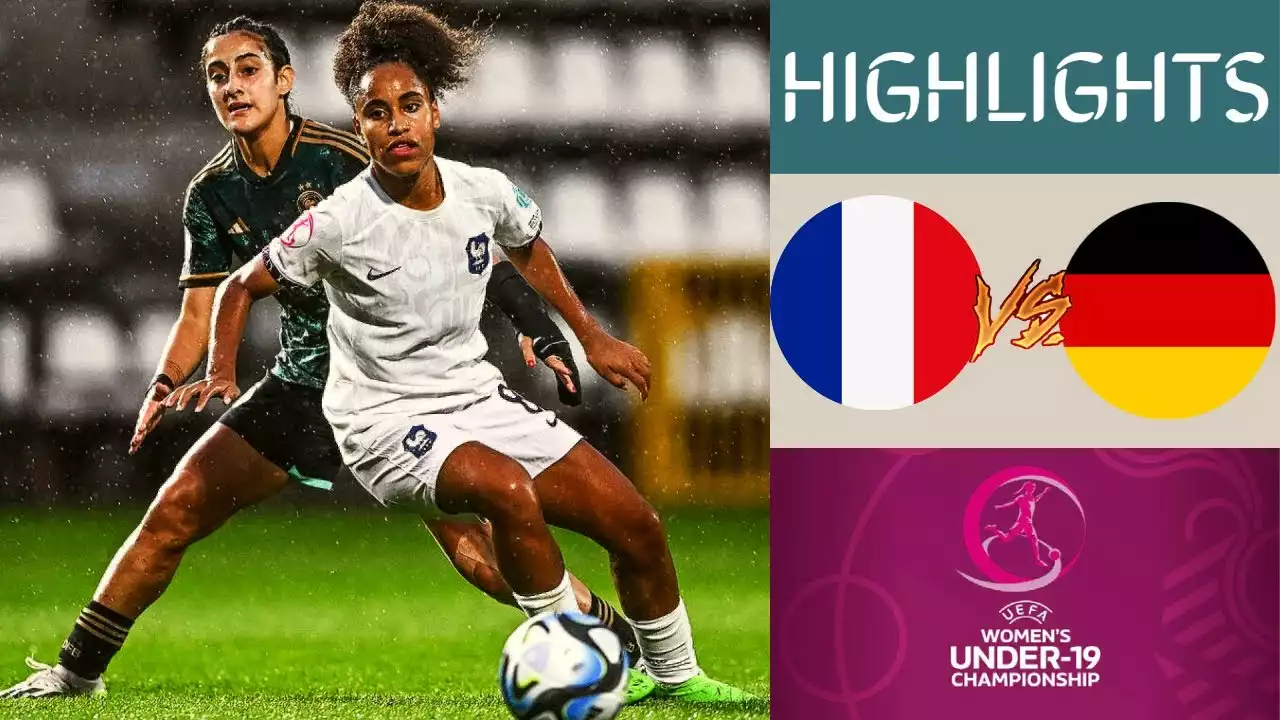The inaugural UEFA Women's Euro in 1984
The year 1984 marked a significant milestone in the history of the UEFA European Women's Championship. This was the inaugural edition of the tournament, and it was hosted by Sweden. The tournament brought together some of the most talented women's national teams in Europe, all vying for the coveted title.
In a thrilling final, the Swedish women's national team secured a historic victory, defeating England in a penalty shootout. This triumph not only marked Sweden's first-ever major international title but also signaled the growing prominence of women's football in Europe. The victory set the stage for future success and laid the foundation for the growth and development of the tournament in the years to come.
The rise of Germany - Dominance in the 1990s and early 2000s
The 1990s and early 2000s witnessed the rise of the German women's national team as a dominant force in the UEFA European Women's Championship. Led by striker Birgit Prinz, the German team showcased their dominance by outscoring their opponents 15-0 throughout the tournament in 1997. This impressive performance resulted in their maiden championship win.
Germany's success continued in subsequent tournaments, with victories in 2001 and 2005. The team's consistent performance and tactical prowess established them as a force to be reckoned with in women's football. Their achievements not only brought glory to their nation but also raised the bar for the level of competition in the UEFA Women's Euro.
Sweden's triumph in 1984 and 2013
Sweden has been a prominent contender in the UEFA European Women's Championship, with their defining moments etched in the history of the tournament. As hosts of the inaugural edition in 1984, the Swedish women's national team captured hearts and made history with their victory over England. This triumph not only marked their first major international title but also showcased their talent and determination on the international stage.
Fast forward to 2013, and Sweden once again left their mark on the championship. In a fierce battle against Germany in the semi-finals, Sweden emerged victorious with a stunning 1-0 win. Although they fell short in the final against Norway, their journey in the tournament was a testament to their resilience and skill.
The Netherlands' historic win in 2017
The 2017 UEFA European Women's Championship will forever be remembered as a historic moment for the Netherlands. Hosted by the Dutch, the tournament saw the home team produce a remarkable performance that brought them their first-ever European title.
Under the guidance of coach Sarina Wiegman, the Dutch team showcased their attacking prowess and tactical brilliance throughout the tournament. Their journey to the final included a thrilling victory over England in the semi-finals, where they secured a late winner to seal their place in the championship match. In the final, they faced Denmark and emerged as 4-2 winners, sparking scenes of celebration across the nation.
The Netherlands' triumph not only brought joy to their passionate fans but also served as an inspiration for aspiring young players across Europe. It demonstrated that with determination, talent, and a collective spirit, anything is possible in the UEFA European Women's Championship.
The impact of the UEFA Women's Euro on women's football
The UEFA European Women's Championship has played a pivotal role in the growth and development of women's football in Europe. The tournament has provided a platform for talented female athletes to showcase their skills and compete at the highest level.
One of the most significant impacts of the UEFA Women's Euro has been the increased visibility and recognition of women's football. The tournament has attracted larger audiences, both in stadiums and through television broadcasts, allowing more people to witness the talent and passion of these extraordinary athletes.
Additionally, the UEFA Women's Euro has served as a catalyst for the development of women's football infrastructure, coaching programs, and grassroots initiatives. The success of the tournament has led to increased investment in the women's game, enabling more opportunities for women and girls to participate and excel in football.
Memorable matches and moments in the tournament's history
Throughout its history, the UEFA European Women's Championship has been filled with memorable matches and moments that have captivated audiences worldwide. These moments have showcased the skill, determination, and resilience of the participating teams and players.
One such memorable match occurred in 2009 when England faced the Netherlands in the quarter-finals. The match ended in a dramatic penalty shootout, with the Netherlands emerging as the victors. This thrilling encounter highlighted the unpredictable nature of the tournament and the intense competition among the teams.
Another memorable moment came in 2013 when Germany faced Norway in the final. In a closely contested match, Germany's Anja Mittag scored the only goal of the game, securing a 1-0 victory for her team. This goal not only secured Germany's sixth European title but also showcased the importance of individual brilliance in deciding the outcome of matches.
Evolution of the UEFA Women's Euro format
Over the years, the format of the UEFA Women's Euro has evolved to accommodate the growing number of teams and to enhance the overall competitiveness of the tournament. From the initial format of a knockout competition involving just four teams in 1984, the tournament has expanded to include 16 teams in the current format.
The expansion of the tournament has allowed for greater representation from across Europe and has provided more opportunities for teams to showcase their talent on the international stage. The inclusion of group stages, followed by knockout rounds, has added an extra layer of excitement and drama to the tournament, ensuring that each match has high stakes and intense competition.
Record-breaking players and teams in the UEFA Women's Euro
The UEFA European Women's Championship has seen several record-breaking performances by both players and teams. These records stand as a testament to the exceptional talent and dedication of the individuals and the collective strength of the teams.
One such record was set by Inka Grings of Germany in 2009. Grings scored six goals in the tournament, becoming the top scorer and leading her team to victory. This remarkable achievement showcased her clinical finishing and ability to perform under pressure.
In terms of team records, Germany holds the record for the most European titles, with an impressive total of eight championships. Their dominance in the tournament is a testament to their strength and consistency over the years.










